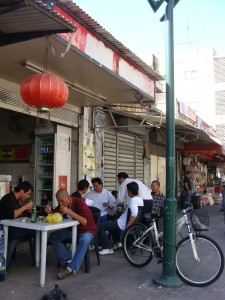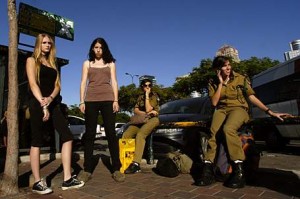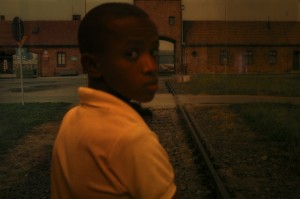 The National, December 26, 2009
The National, December 26, 2009
“Finish green!” a six-year-old Palestinian girl exclaims in English, dropping a pastel crayon onto the table and raising her open hands into the air.
She reaches for blue and turns back to the paper before her. Volunteer Michael Cooper, 30, crouches next to her. Using his fingers, he teaches the girl how to blend one color into the next. Her small hand follows his.
When Cooper stands, he’s got broad smudges of green and blue on his face. “It’s all part of the job,” he comments.
But it’s not a job at all. Cooper is one of 12 volunteers who will spend the next week donating their time, energy, and enthusiasm to 70 Palestinian kids who attend the Hermann Gmeiner School in Bethlehem. About half of the children are part of SOS Palestine, a program that provides a home and education to youth from troubled backgrounds.
Continue reading “UAE charity brings art to Palestinian children”

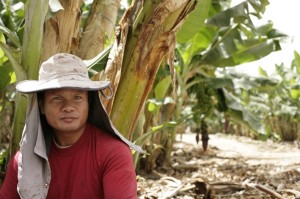
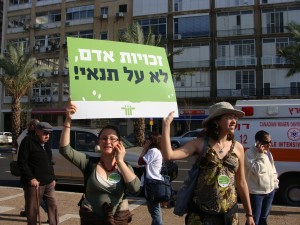
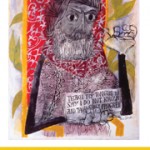
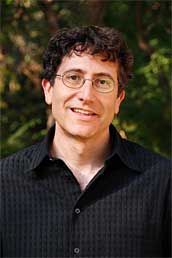
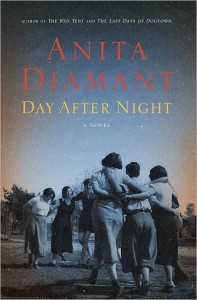 Review of Anita Diamant’s Day After Night
Review of Anita Diamant’s Day After Night